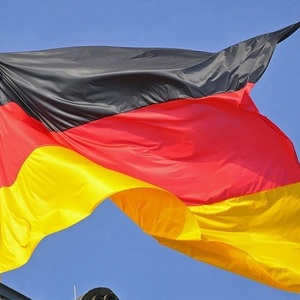ADM blames imports for cutting German biodiesel output

March 28, 2018
BY Ron Kotrba
Archer Daniels Midland Co. announced plans to temporarily cease production of biodiesel at its 275,000-ton-per-year facility in Mainz, Germany, as a result of increased biodiesel imports into the EU.
“The standstill is expected to last at least the duration of quarter two, and will be reviewed during quarter three,” the company stated. “Since September, the European Union has seen an influx of imported biodiesel, which has placed significant pressure on the local market, impacting profitability for European-based producers. With continued imports and increasingly poor margins, the company has taken the difficult decision to cut back production in the region.”
ADM first announced plans to build the Mainz biodiesel plant—the company’s third German biodiesel manufacturing facility—back in 2005.
The news of the shutdown comes six months after the EU drastically lowered antidumping duties on Argentine biodiesel imports resulting from a World Trade Organization appellate decision that found the tariffs were too high. In January, the WTO made a similar finding regarding tariffs on Indonesian biodiesel.
Advertisement
ADM is not the first or only company to cut back biodiesel production in the EU as a result of low-cost imports from Argentina and Indonesia. In October, major French biodiesel producer Saipol, a subsidiary of Avril that operates five biodiesel plants in France, announced its biodiesel production this year could be reduced by nearly half, from 1.3 million tons (390 million gallons) of biodiesel in 2017 to 700,000 tons (210 million gallons).
“Saipol must adapt its production immediately to the marked drop in orders and the market destabilization already caused by reopening of the European market to Argentine biodiesel,” the company stated last fall.
Advertisement
Related Stories
Biodiesel capacity in the U.S. and Canada dipped slightly stable in 2024, with several renewable diesel producers reporting headwinds and lower margins alongside a drove of SAF projects in various stages of development.
The IEA’s Task 39 group has new research regarding the development and status of the sustainable aviation fuel industry.
Montana Renewables LLC has delivered its first shipment of 7,000 gallons of SAF to Dearborn, Michigan's Buckeye Pipeline facility. From there, the fuel will be transported to the Detroit Metropolitan Airport via pipeline for use by Delta Air Lines.
NYC took a monumental step towards clean air and a sustainable future on Jan. 11 with the grand opening of the city's first retail fuel station dispensing renewable diesel. The project is a collaboration between Sprague and Sonomax.
The USDA on Jan. 11 awarded $19 million under the Higher Blend Infrastructure Incentive Program. The grants will support projects in 22 states to expand the availability of higher ethanol and biodiesel blends.
Upcoming Events










